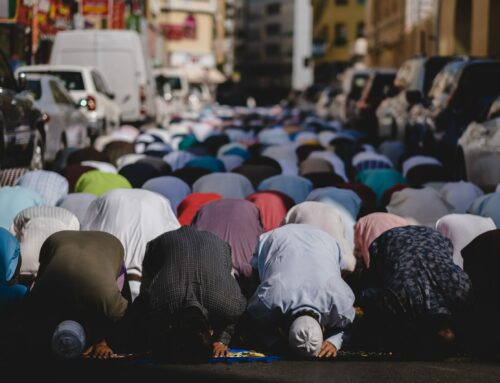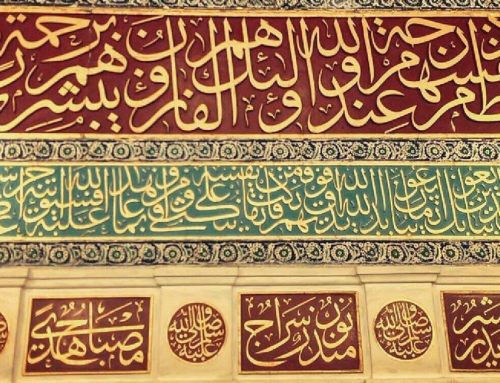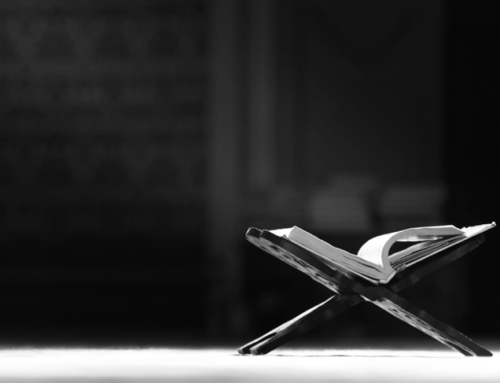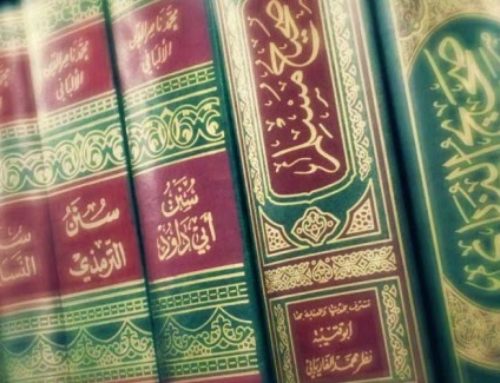Translated by Shaykh Yusuf Laher
[1 – 25] Part One
[26 – 45] Part Two
[46 – 74] Part Three
[75 – 100] Part Four
[101 – 125] Part Five
[126] Result of futility
A person who spends his time in pursuing futile things will never be inclined towards the necessary things. This is proven through experience.
[127] The fear of becoming pious
If someone fears that if he becomes pious (muttaqi), he will lose out on the worldly pleasures, then I say; “Make the intention that I do not want to become pious. However, for the sake of Allah spend some time in the company of the ‘ulama and the masha’ikh and understand the din. The result of this will be that you will not experience any difficulty in becoming pious. On your own accord you will build up the interest to practice (on the din) and you will experience such joy and pleasure in practicing on the din that you will forget about all the worldly pleasures.”
[128] Concern for the hereafter
Whoever turns all his worries and concerns into one major worry, and that is the worry of the hereafter (akhira), then Allah Most High will suffice for all his worldly worries i.e. Allah will fulfill them. On the other hand, the person who takes all the worries upon himself (with the result that he neglects the hereafter), Allah Most High is not concerned about him and does not care in which valley he perishes.
[129] Protection of your din
If a person wishes to protect his din then he should follow a pious scholar.
[130] Do not laugh at others
Do not laugh and mock at others. It has been observed that whoever laughs at others becomes involved in the same problem and sin.
[131] The wrath of Allah
When the wrath of Allah is upon someone then that person does not regret his sins. This (not regretting) is the sign of the wrath of Allah. Thus, Iblis has no regrets over his rejection.
[132] Death with iman
Hadrat! A person should die with iman, even if it is with the lowest degree of iman, it is a great treasure. Thereafter, in a fearful tone, Hadrat said: “It is in the Hands of Allah. Without His Grace nothing takes place.”
[133] Ease in devotion
I have opted for ease in my devotions. This is my inclination and I prefer the same for my brethren. My heart’s desire is that they stay with ease in this world and also in the hereafter.
[134] Boasting and gratitude
To boast about a ni’ma is pride (kibr) and to consider it as a gift from Allah while considering oneself unfit for such a ni’ma is gratitude (shukr).
[135] Tranquility
The easiest way to achieve tranquility is through taslim (acceptance), tafwid (handing over matters to Allah) and humility.
[136] Reality of tawakkul
Man should plot and adopt the means, thereafter trust in Allah. This is actual tawakkul (trust in Allah).
[137] Reason for weakness in good deeds
The reason for weakness in good deeds is love for the world and no conviction in the hereafter.
[138] The effect of du’a
Man should make du’a that he achieves success in his aspirations or for the removal of difficulties. As far as possible he should be attentive and humble in du’a and say: “O Allah! Do this certain thing for me.” Every request should be repeated thrice. Immaterial whether the request is fulfilled or not, du’a has a great effect on the heart as far as peace and satisfaction is concerned.
[139] Knowledge and pious company
‘Ilm (knowledge) without suhba (company of the pious) is not beneficial. The islah (reformation) of a person with suhba and‘ ilm is easier compared to the person with ‘ilm but without suhba. All the Companions (may Allah be pleased with them) were not scholars. Whatever they achieved they achieved through suhba. The people of Allah (Ahl Allah) have always taken care with regard to suhba. They concentrated more on suhba than ‘ilm.
[140] Saving a Muslim from harm
The hadith says: “A Muslim is that person from whose tongue and hands other Muslims are safe. Thus, that action that harms a Muslim is not din but is the discarding of din.”
[141] Love for the dunya
To earn the dunya is not haram (prohibited), but love of the dunya is haram. To earn money is not haram, but to become engrossed in it is haram. If milk, ghee, etc. is not eaten then the mind will be affected resulting in that person not being able to do any work. If the mind is nurtured and protected then that person will be able to perform. Feed the nafs (lower self) and take civil (dini) work from it. The nafs is like an employee and the mind a governmental machine. If it gets paid regularly (fed) and regular repairs take place then it will keep on functioning.
The Messenger of Allah (Allah bless him and give him peace) says that your nafs also has a right upon you. He also says that a strong Muslim is better than a weak Muslim, i.e. he is physically strong so that he can assist others, and he is also spiritually strong.
[142] To forgive others
There are great virtues in accepting the apology of the wrongdoer.
[143] The one hopeful of forgiveness should stay in the company of the awliya
That person who desires forgiveness (in the hereafter) should adopt the company of the awliya. By staying in their company you will receive baraka (blessings) in your actions, for their hearts are enlightened. By staying with them nur (divine light) will develop in the hearts. When nur comes then darkness dissipates and doubts are removed. Just seeing them is enough.
[144] When relatives and friends do not express love
If relatives and friends do not express love then one should be relieved thinking that Allah Most High has freed ones heart from ghayr Allah, i.e. from others besides Allah. Sometimes everyone turns away so that the person learns that only Allah is worthy of being loved.
[145] Peace only in paradise
Do not desire peace and comfort in this world. Troubles will only come to an end when in Janna. Complete peace is only in the hereafter. That difficulty which is a means of building ones hereafter is in reality not a difficulty. Yes you should make du’a for peace and protection and that you receive such bounties which you can bear.
[146] Benefits of istighfar
The means of fulfilling the needs of the dunya and hereafter is istighfar (seeking repentance).
[147] The road opens with effort
The road opens with effort. Do not wait to first view the road and then move forward. It is like a long road with trees on both sides. The road is straight but when looking ahead it seems that the trees meet in front, but as you move forward so does the road open up.
[148] Good thoughts about others
Think good thoughts about others, but when dealing with them, be cautious.
[149] ‘Ibada (worship) at night
It is mentioned in a hadith that the person who wakes up at night and petitions Allah, Allah says that He is very pleased with such a person, for he has left his wife and warm bed for My sake.
[150] The method of reaching Allah
The only way to reach Allah Most High is to rid oneself of akhlaq radhila (lowly and debase qualities), to develop akhlaq hamida (beautiful qualities) and the acquisition of tawfiq (guidance towards obedience from Allah). Negligence of Allah disappears and attention towards Allah develops.
[151] Virtue of death on a Friday
It is mentioned in a hadith that if a person dies on a Friday, the angels will not question him till qiyama. The reason for this is the greatness of Jumu’a. It is immaterial whether the person dies before or after the Jumu’a prayer. Therefore to wait for the performance of the Jumu’a prayer before performing the janaza prayer is against the Shari’ah and futile.
[152] Sin of murder for breaking ties
The hadith says that if a Muslim does not speak to another, i.e. he breaks ties for a year, then he receives the sin of murder.
[153] We do not understand the Divine wisdom
A child was brought to Hadrat for “damm“, i.e. reciting [a Qur’anic ayah] and blowing on the child, but the child started to scream and cry. Hadrat said:” Absence of knowledge and understanding is an astonishing thing. It makes a beneficial thing seem harmful. This child has been brought for its benefit but has become uneasy. It is the same with Allah and us. His attitude towards us is one of mercy but we become uneasy and scream. We should take a lesson from this.”
[154] Acceptance of salat
Hadrat Haji Imdad Allah Muhajir Makki (may Allah have mercy on him) said that when a ruler becomes displeased with someone’s presence (in his court) then will he allow that person to enter again? Never! So when you went for one salat to the masjid and thereafter received guidance to go again (for the next salat) then understand that your first salat has been accepted and you are also from the accepted ones!
End







As-salamu `alaykum,
For all those wondering, this is the last part in the series “Advices of Hakim al-Umma”. May Allah reward Shaykh Yusuf Laher tremendously for giving us permission to edit and subsequently publish (on the internet) his translation of Hakim al-Umma Mawlana Ashraf ‘Ali Thanawi’s advices.
Hamood
SubhanAllah how beautiful site this is and how beautiful article this was.
May Allah subhanahu wa ta’ala bless your team as well as all the authors and may He give all of you good in both this world and the Hereafter ameen.